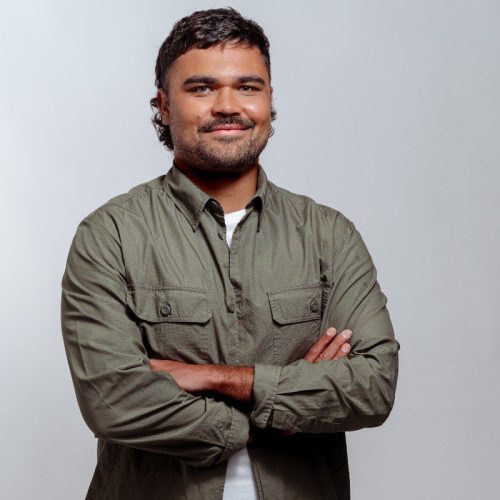
Jonah Johnson is a Wiradjuri man on his mother side from Griffith in the Riverina of NSW, and Japanese and Aboriginal on his father’s side (engaging in a process to reconnect with his grandfather’s family and country). Growing up in Sydney, Jonah completed a Bachelor of Communications (Social and Political Sciences) at the University of Technology, Sydney. He went on to spend six years at the CBA in various Comms and Public Relations teams and Indigenous Talent Acquisition.
He is currently a Senior Digital Producer at National Indigenous Television, where he has been for over two years.
Jonah believes diverse representation across all media is critical to how we see ourselves as communities and a nation. He advocates for authentic storytelling where lived experiences are reflected in the media landscape, particularly for blak communities who have historically been excluded from controlling their own narratives and informing broader audiences.
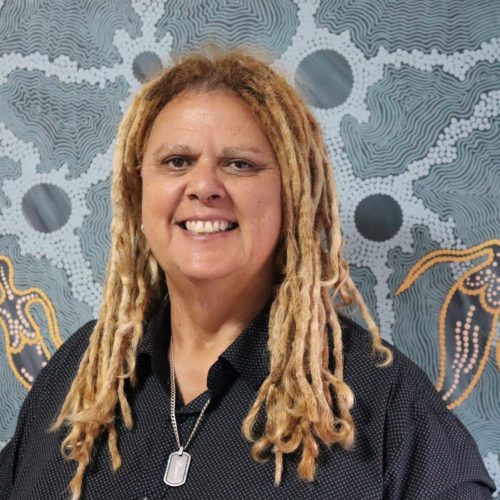
Lil Gordon is a proud Ngemba woman from Brewarrina in Northern NSW with 34 years of experience working in and alongside Aboriginal communities.
Lil Gordon is a strong, dynamic and accomplished leader. Throughout her career, she has worked in high-level complex environments requiring resilient and focused leadership.
Lil’s current role is Acting National Commissioner for Aboriginal and Torres Strait Islander Children and Young People. The National Commission is a newly established separate and independent entity within the Social Services portfolio.
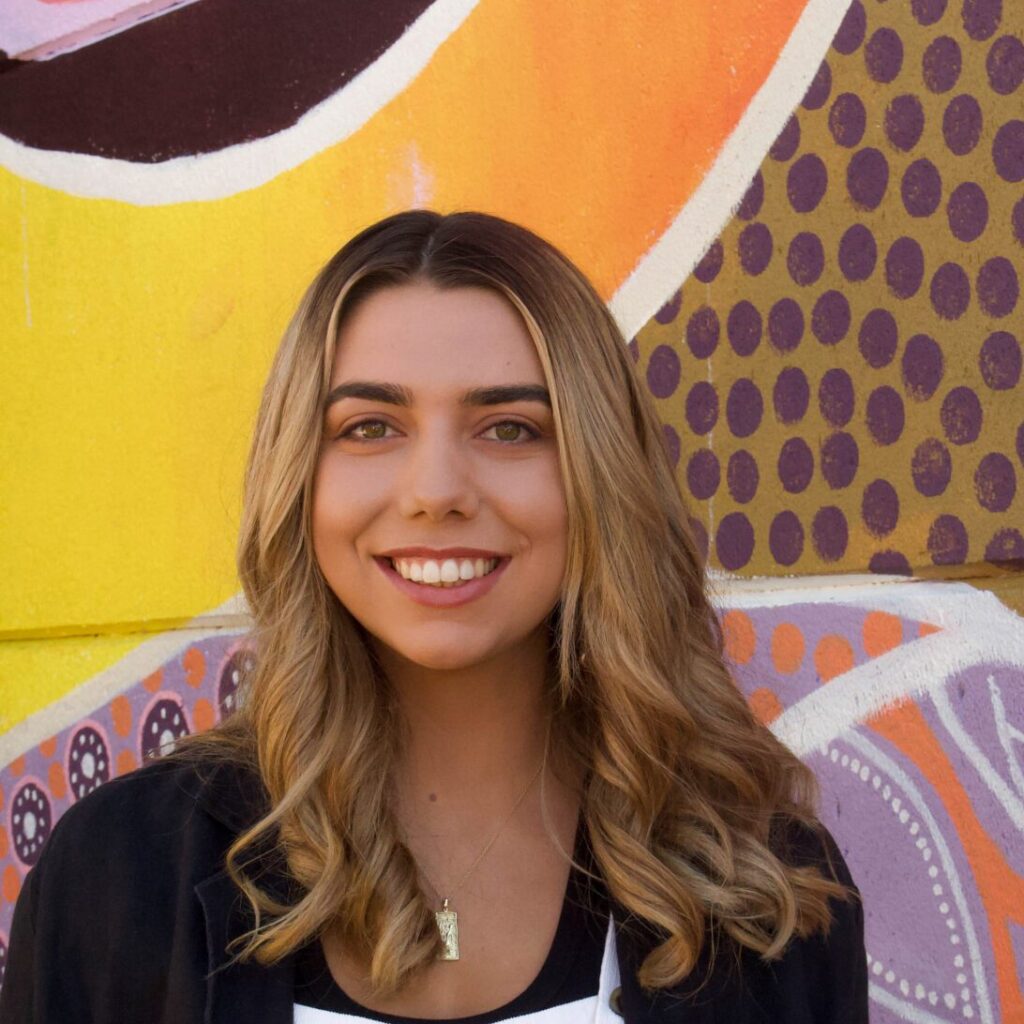
Gemma Pol is a Wiradyuri, Ngemba and Paakantji woman from a small coastal town on Worimi Country. She is the CEO of Common Ground First Nations, a 100% First Nations not-for-profit driving systems change through storytelling. She is also a non-executive director at Firesticks, contributing to Indigenous-led cultural fire management and the creation of self-determined communities that drive their own cultural burning practices.
With a background in strategic communications, governance and social impact storytelling, Gemma is passionate about truth-telling, movement-building and creating safe spaces for First Nations people to share their stories on their own terms. She believes storytelling is a powerful tool for shifting narratives, strengthening communities and driving systemic change that protects both people and Country.
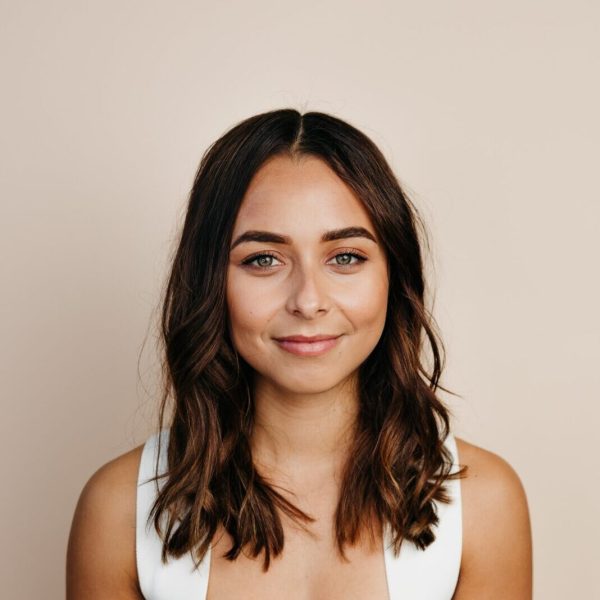
Brooke Blurton is a leading media personality, author, podcast host, and brand ambassador who made history as the world’s first LGBTQI+ and First Nations Bachelorette.
Since breaking those records, she has become a regular television presence, appearing on Neighbours, Luxury Escapes, and The Challenge on Channel 10, as well as SBS’s The Cook Up.
Drawing from her background as a youth worker, Brooke is an outspoken advocate for mental health awareness, Indigenous rights, and LGBTQIA+ visibility. Her authentic voice on issues affecting First Nations communities and mental health, combined with her relatable content and distinctive style, has built a strong and loyal following across Instagram and TikTok.
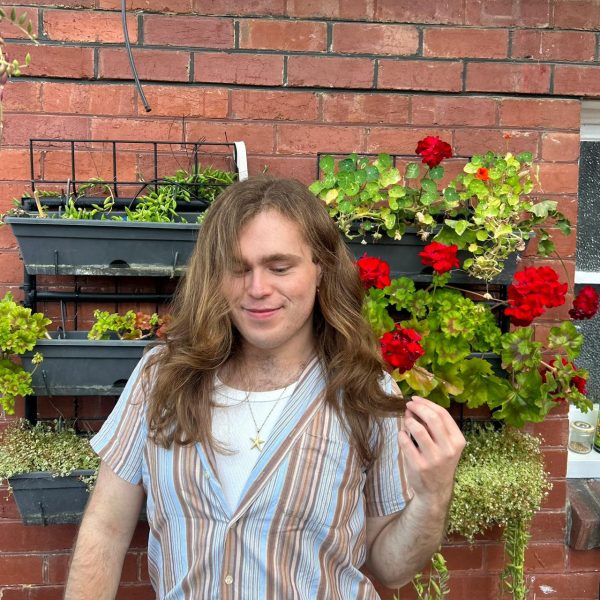
Ruben Sherriff is a 22-year-old pakana man from nipaluna/Hobart, living on muwinina Country. Currently completing his Honours degree at the University of Tasmania, he is a passionate advocate for young people’s safety and amplifying young queer and blak voices.
Ruben brings his commitment to Indigenous advocacy and the power of lived experience to his work with NAPCAN and The Survivor Hub, where he focuses on youth advocacy, peer support, and consent and respectful relationships education.
This year, you don’t need to wait until September to join the conversation. Our webinar series starts July 9, with our NAIDOC week webinar.
Join us and a powerful panel spotlighting how First Nations children and young people are using digital platforms to reclaim space, tell their stories, and shape their futures.
From social media to grassroots campaigns, Blak youth are leading a digital movement, using art, storytelling, and media to heal, resist, and rewrite the narrative.
This conversation dives into how online spaces are being transformed into tools for justice, cultural pride, and self-determination, while challenging harmful stereotypes through bold, community-led content creation.
Don’t miss this inspiring dialogue on First Nations strength, creativity, and the future of digital advocacy.
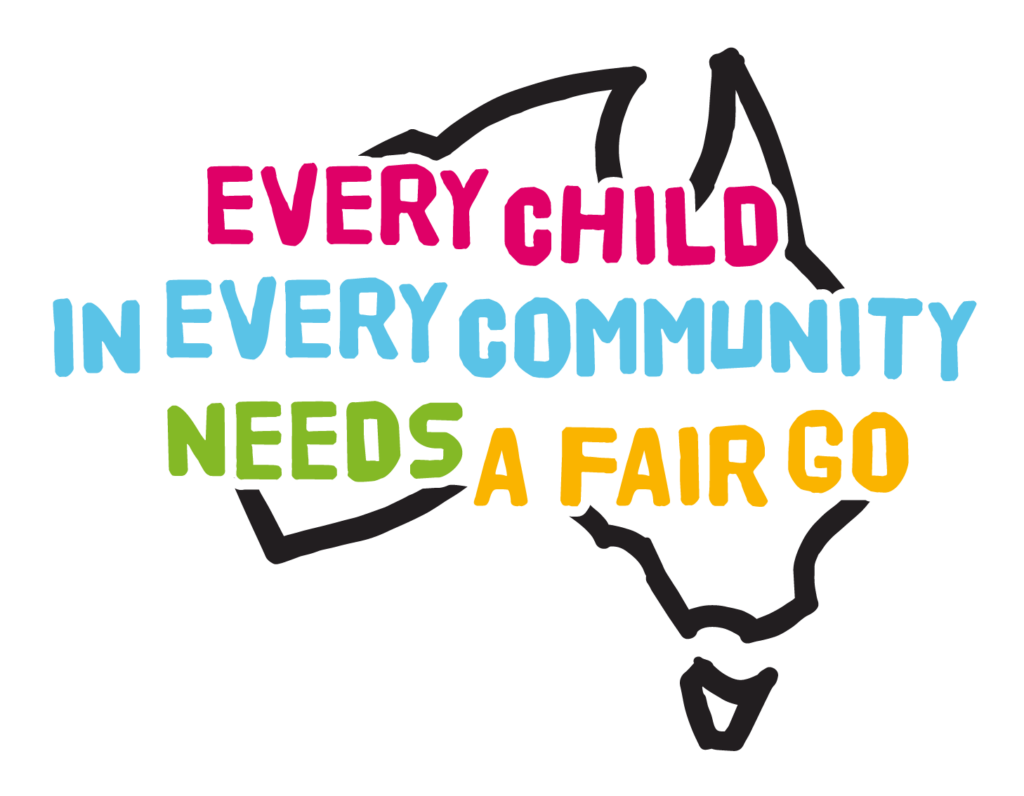
Rosemary Sinclair and Christine Stewart founded NAPCAN on 2 August 1987 with the support of Professor Kim Oates. NAPCAN began coordinating National Child Protection Week (NCPW) across Australia in an effort to engage and educate all Australians to understand they have a part to play in keeping our children and young people safe.
For over 30 years, NAPCAN has been running the annual NCPW campaign. Each campaign builds on the strengths of previous years and has evolved to provide support to communities to act on the core message, “protecting children is everyone’s business”.
As it stands today, NCPW aims to engage, educate and empower Australians to understand the complexity of child abuse and neglect and work together to prevent it. The campaign does this through sharing evidence through webinars and events as well as creating resources in order to empower communities to have conversations regarding children’s safety and wellbeing.
Since those days we have remained dedicated to bringing the eradication of child abuse and neglect to the forefront of Australian society. We are a national organisation with a small multidisciplinary team delivering services across Australia, working with thousands of volunteers trained to deliver our programs. Our passionate and capable staff work under the guidance of a highly experienced Board of Directors and we work with all levels of government, businesses, community services and organisations, families and individuals for the betterment of children and young people in our shared community.
NAPCAN has both deductible gift recipient (DGR) and public benevolent institution (PBI) status with the Australian Tax Office.
Register for our NAIDOC webinar
More about this year's theme
Pledge your support
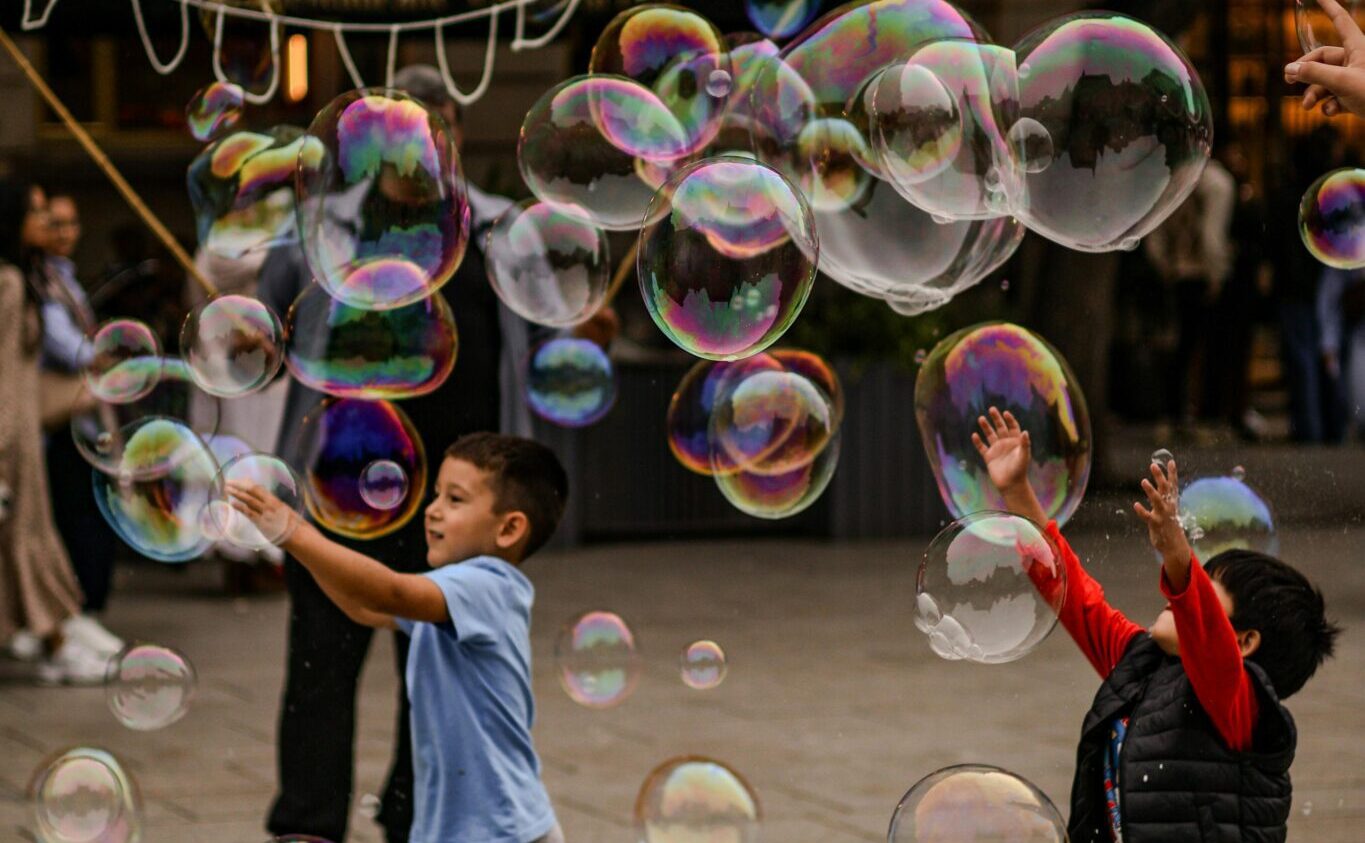
Child abuse and neglect is preventable. If we all work together as a community we can create an Australia where all children can grow up safe and well.
What role can you play in supporting children and their families?Leesa Waters, CEO, NAPCAN
